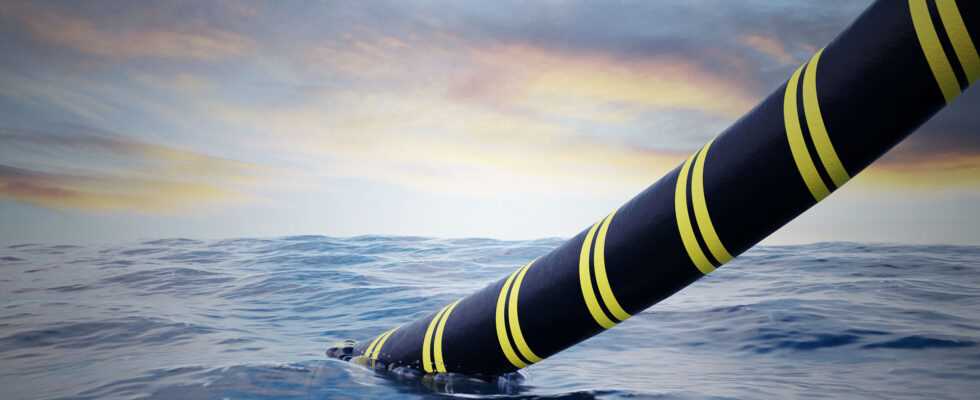Attacking submarine cables is almost science fiction, but it does not prevent this eventuality, even touched upon, worried, and rightly so.
If the submarine cables do not enjoy, by definition, a great notoriety, also because invisible to the eyes of the general public, their importance is nevertheless strategic, and the word is weak. 99.7% of data exchanges and global Internet traffic pass through these 430 to 450 gigantic cables that connect the five continents, between seas and oceans. And while some have believed – wrongly for now – that Russia is considering disconnecting from the global web to build its own network, Joe Biden’s ominous cybersecurity warnings raise the threat of an attack by the submarine cables, an indispensable link in the global Internet.
That Russia is attacking submarine cables? Not a trivial hypothesis for Western armies
Since the beginning of the invasion of Ukraine, the hypothesis of attacking the submarine cables has come up on the carpet several times, in particular within certain staffs. Our British colleagues from Guardian relayed for example, in January 2022, the remarks of the head of the British armed forces, Tony Radakin, who evoked the possibility that Moscow could “ endanger the information circulation system which depends on the numerous submarine cables “. The American think tank Atlantic Council thinks the same thing.
The issue surrounding submarine cables is major. In addition to the data provided at the start of the article, you should be aware that these pipes represent 1.3 million kilometers and allow hundreds of billions of financial transactions to pass through the world throughout the year, not to mention e-mails, messages or other sent through the most popular applications. And if these cables lie at the bottom of the sea, they do not benefit from any particular protection.
France is also one of the nations most exposed to this potential risk, due to its 10.2 million km² of maritime area, the second largest on a planetary scale. Ensuring total surveillance of these “facilities” would require colossal investments. Today, only integrated surveillance systems that can alert of a nearby threat exist, but we remain within the framework of passive detection.
Sabotaging a submarine cable: an act not impossible, but perhaps a limit not to be crossed
Sabotaging a submarine cable thus seems to be accessible, simple and relatively low risk to those who give themselves the means. An anchor lying around in the right place, a submarine or a diver trapping the cable, mines that can then be triggered remotely… all the hypotheses are admissible and, alas, plausible.
But without its own network, Russia would scuttle itself by damaging submarine cables. Admittedly, the damage would be colossal for all those connected by these fiber pipes, but the latter perhaps represent the ultimate red line not to be crossed. In addition, it would obviously not be enough to attack a single cable to deprive the world of the Internet, but to target many of them simultaneously, which would constitute a ” large-scale military operation as described by Tobias Liebetrau, a specialist in international relations and computer security issues at the Danish Institute for International Studies.
And yet, the international community is far from reassured. Suspicious activity emanating from Russia has been reported in recent months and years in the immediate vicinity of locations where certain cables are located.
If there is currently no evidence of a potential attack on these cables, and Moscow has rejected Joe Biden’s accusations outright, the maritime movements of Russian forces in certain critical areas still maintain and reinforce suspicion. , especially since the means of communication always remain targets in times of conflict.
On the same subject :
From Marseille to Singapore: Orange will participate in the creation of an “express” submarine cable
Source: France 24

25